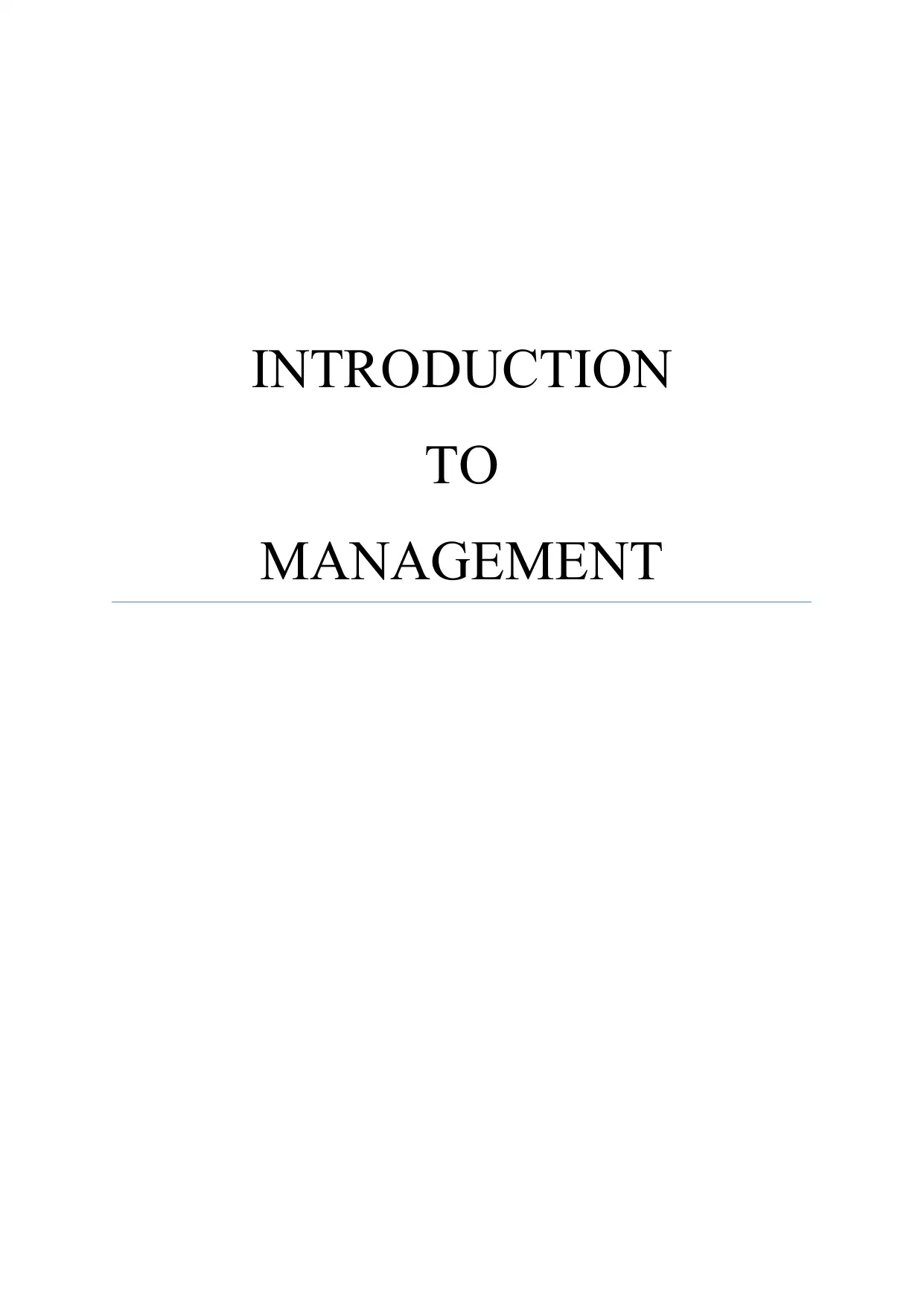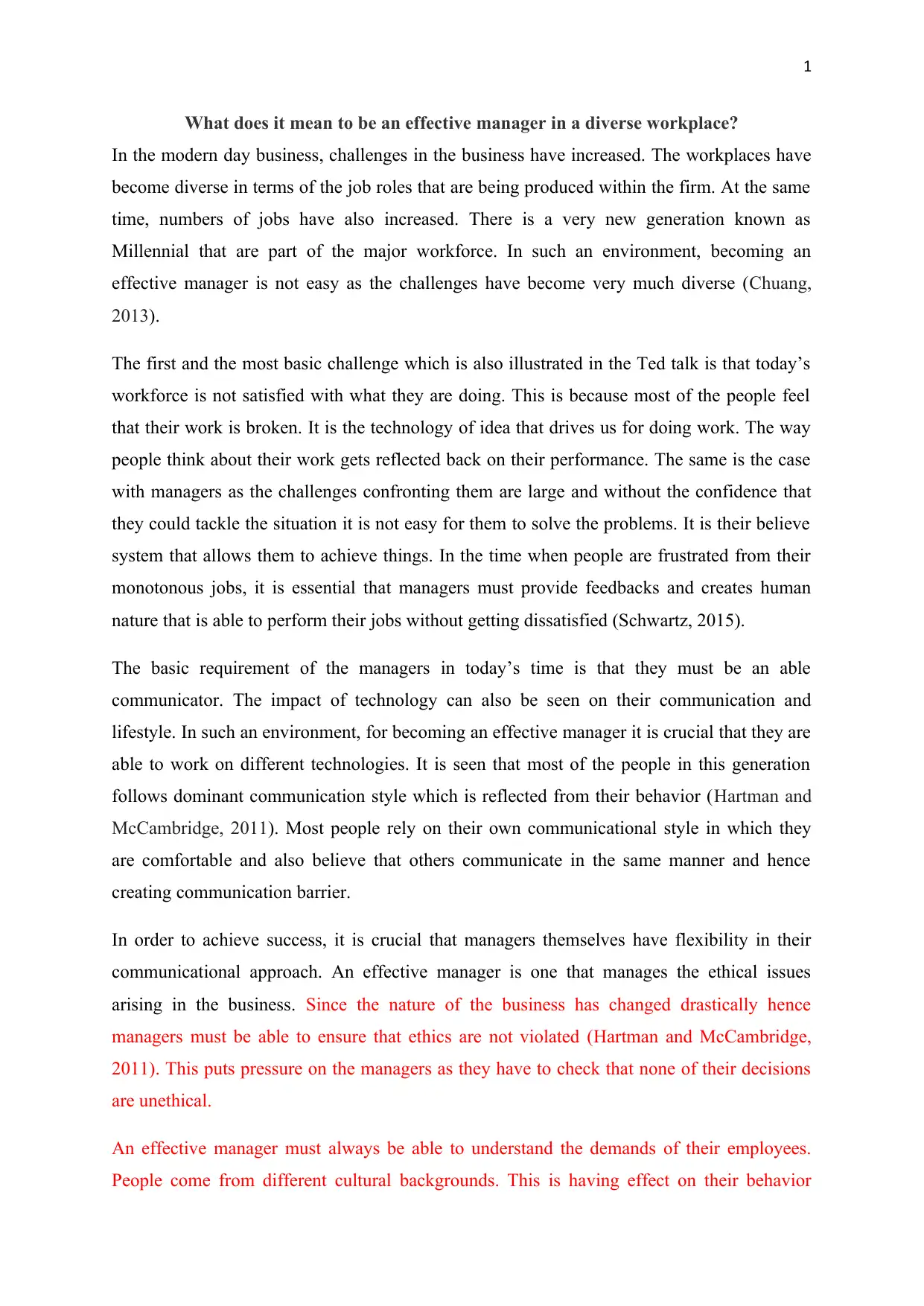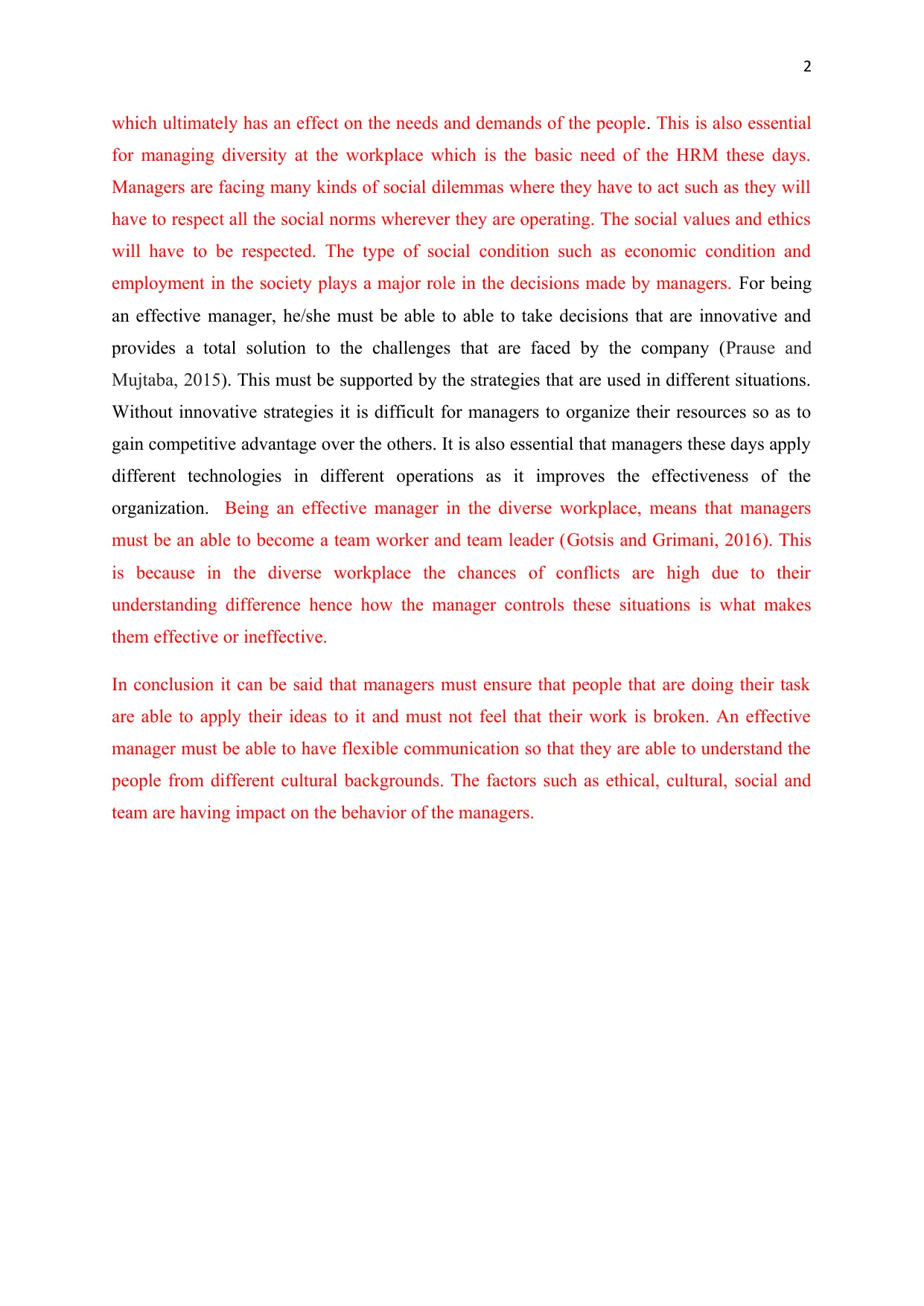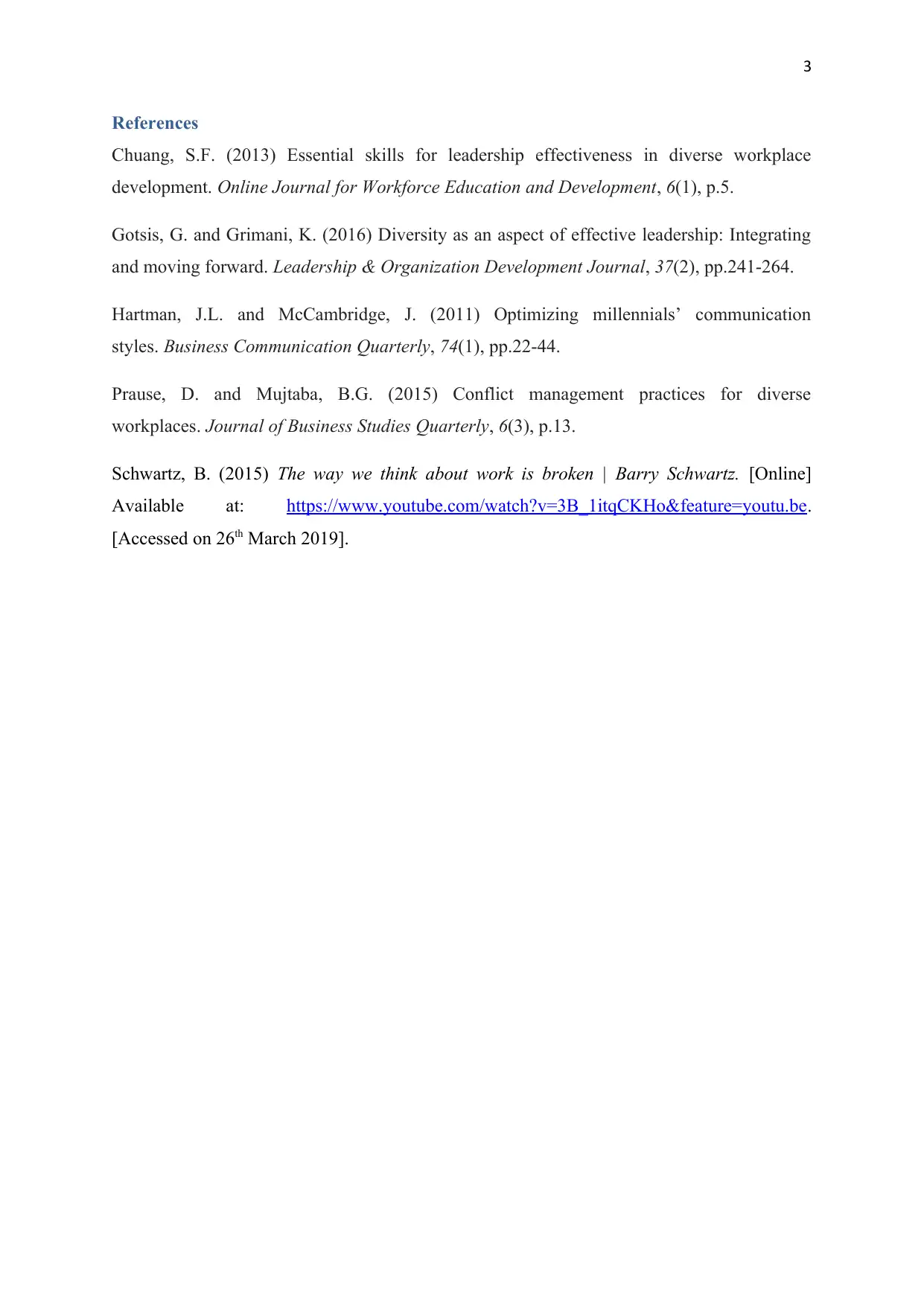Introduction to Management: Diverse Workplace Effectiveness
VerifiedAdded on 2023/04/17
|4
|868
|479
Report
AI Summary
This report provides an overview of effective management in diverse workplaces, addressing the increasing challenges faced by managers in today's business environment. It emphasizes the importance of communication skills, particularly in the context of a millennial workforce, and highlights the need for managers to adapt to different communication styles and leverage technology. The report discusses the significance of ethical considerations, cultural sensitivity, and social awareness in managerial decision-making. It also stresses the importance of team leadership and conflict resolution in diverse teams. The report concludes by summarizing key factors such as ethical, cultural, social, and team dynamics that impact managerial behavior, emphasizing the need for managers to foster an environment where employees can contribute their ideas and feel valued. The report references relevant academic sources to support its arguments and provides a comprehensive understanding of the subject.
1 out of 4










![[object Object]](/_next/static/media/star-bottom.7253800d.svg)